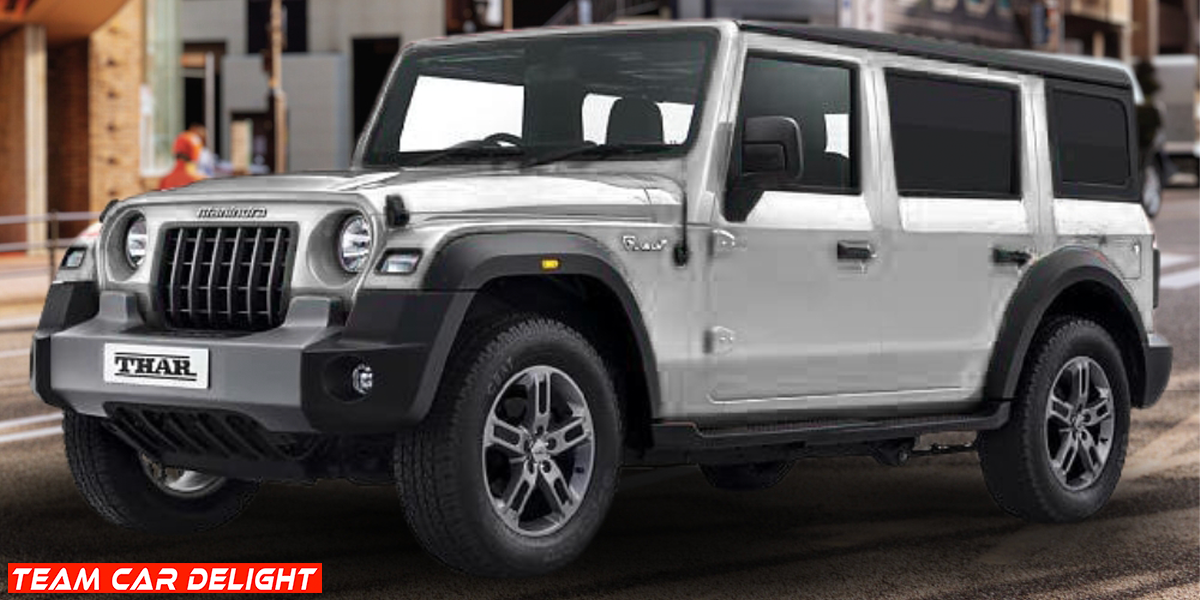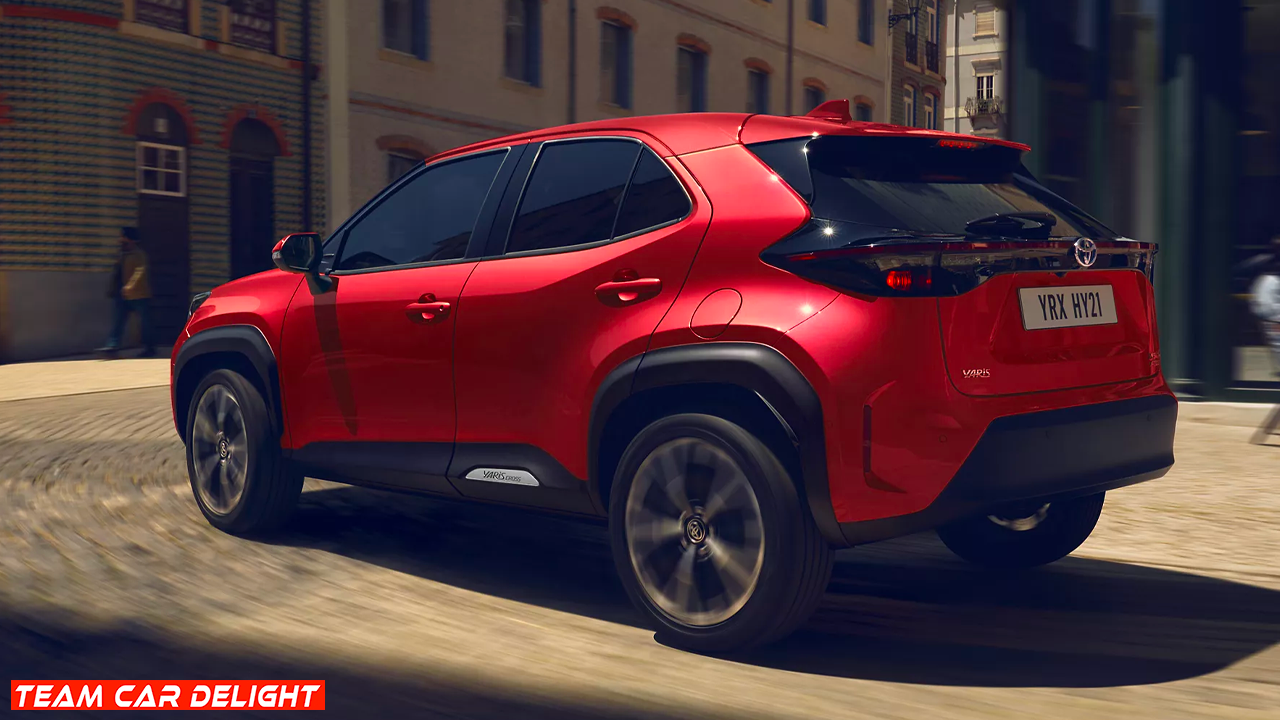
In 2024, 6 new SUVs is set to launch from carmakers – Hyundai to Toyota. These 6 SUVs are either completely new, rebadged, or a facelift update. Here, we’ll list down all the details we’ve of these upcoming SUVs –
Hyundai Creta Facelift (Expected: Early 2024)
The Hyundai Creta Facelift was spotted recently and a youtuber made a whole walkaround of the SUV. Hyundai is skipping the facelift update and going directly for the next-gen version. The video revealed so many details like the SUV will come with 360 Surround View Camera, Camera and Radar based Level 2 ADAS, and design inspiration taken directly from the Palisade that is sold overseas. The bumpers of the SUV are updated, the tailgate has been redesigned and looks similar to the Venue, and dawns an H-shaped LED DRLs like the Exter SUV. Additionally, the SUV gets a split unit vertical LED headlamp design and cube like detailing, and updated front grille.
The spy shots while revealed that the 17-inch alloy wheel design is the same as the outgoing version, there has been other test mules spotted with larger 18-inch alloy wheels. Moving to the interiors, it was fully covered, but still from what it looks like, it’ll sport dual 10.25-inch displays similar to the new-gen Verna, and no other major change is expected although new shades for the seat upholstery is expected. As for the engine options, the facelift will be getting the new 1.5 L 4 Cylinder Turbo Petrol Engine that generates 157.81 BHP and 253 NM of torque mated to 6 Speed Manual, and 7 Speed DCT Gearbox. It’ll also continue to offer the 1.5 L naturally-aspirated petrol engine, and the 1.5 L Diesel Engine.

Lastly, it already comes with features like ventilated seats, 8-way powered adjustable driver seat, wireless charging, ambient lighting, panoramic sunroof and so much more. We know now confirmed it’ll get 360 Surround View Camera with front and rear parking sensors, and Level 2 ADAS with features same as the 2023 Hyundai Verna such as Adaptive Cruise Control, Lane Keep Assist, Lane Departure Warning, Blind Spot Monitoring System, Rear Cross Traffic Alert, Forward Collision Warning, Auto High Beam Assist, and many more.
We expect Hyundai to launch the Creta facelift in early 2024 as it rivals the Kia Seltos, Honda Elevate, Maruti Grand Vitara, Toyota Hyryder, Skoda Kushaq, Volkswagen Taigun, MG Astor, and Citroen C3 Aircross.
Kia Sonet Facelift (Expected: Early 2024)
Kia has been testing the Sonet Facelift for quite some time now, but just few days ago, a youtube channel “The Car Show” uploaded or leaked the interiors and exteriors of the SUV by doing a quick walkaround of the SUV. So, the variant we saw leak was the mid-spec variant that had features like the single-pane sunroof, automatic climate control, front and rear parking sensors, 16-inch dual tone alloy wheels, and its possible it has ventilated seats as well. Also, the automatic climate control has a small display with two buttons.

Kia has cleaned the dashboard by having one row of buttons on top, and row of toggles that just looks cleaner. Moreover, the LED headlights are redesigned and looks similar to the Seltos Facelift and so does the connected LED taillamps. It’s possible that Kia has made 360 Surround View Camera and ADAS exclusive to top variant which is either GT-Line or X-Line. Also, the ADAS is expected to be the same as the Hyundai Venue, meaning it’ll be camera-based, so it’s highly likely it won’t get ADAS feature like Adaptive Cruise Control. Kia is expected to launch the Sonet Facelift by late 2023 and early 2024.
Mahindra XUV300 Facelift (Expected: Early 2023)
As seen in the spy shots, the upcoming XUV300 Facelift will feature huge new C-Shape LED DRLs that were seen on the concept BE.05 electric SUV with little changes to the front grille, new bumpers, bonnet, and new set of alloy wheels. The rear will feature new LED taillamps and a LED light bar for a connected light sequence. The Interior will feature a new freestanding infotainment system that is likely to be an 10.25-inch unit replacing the outgoing version. Next to that is the four-spoke steering wheel that will be carried over from the outgoing version, the AC vent this time will be below the infotainment system and the center console will under some revisions as well.

The outgoing version comes with less features compared to its rivals like the newly launched Tata Nexon Facelift, Kia Sonet, Hyundai Venue, Maruti Brezza, and so on. It has first-in segment feature like Dual-zone Climate Control. This could change as Mahindra could add features in their SUV like the ventilated seats, wireless charging pad, digital instrument cluster, LED Projector headlamps, drive modes, additional connected car tech features, and confirmed panoramic sunroof.
As for the safety, it offers features like 6 Airbags, ABS with EBD, all four wheels with Disc Brakes, Hill Start assist, Height Adjustable seat belt, Tyre-Pressure Monitoring System (TPMS), ISOFIX child anchorages, front and rear parking sensors, and so on. To enhance it even further, Mahindra could add the 360 Surround View Camera, and make some features standard across all the variants. Mahindra is expected to launch the XUV300 facelift in the early 2024.
Toyota Urban Cruiser Taisor (Expected: Late 2023 – Early 2024)
Toyota was expected to launch the Fronx-based SUV in November 2023 just before the festive season, but November is now about to end and since we’ve got no updates, we expect Toyota to launch the SUV between late 2023 and early 2024. As for the exterior design, we expect it have front change inspired from either the Hyryder, or it could take some design elements from the Glanza. The Interiors however will just be logo and software change and nothing else.
In terms of Dimensions, the Toyota Taisor will measure the same as the Maruti Fronx, i.e, 3995mm in length, 1765mm in width, and 1550mm in height. It’ll feature wheelbase of 2520mm, ground clearance of 190mm, boot space of 308 litres, and Petrol Fuel Tank of 37 litres and Single CNG Cylinder of 55 litres.

When it comes to Powertrains, the Taisor will sport three options – Petrol, Turbo Petrol, and CNG. The 1.2-litre DualJet, Dual VVT petrol engine puts out 87.29 bhp and 113 Nm of torque mated to a 5-speed Manual and 5-speed Automatic Gearbox. The next is the 1.0-litre Turbo BoosterJet petrol engine which produces 98.69 bhp and 147.6 Nm of torque mated to a 5-speed Manual and 6-speed Automatic Gearbox. Last option is the 1.2-litre CNG producing 76.43 bhp and 98.5 Nm of torque paired to 5-speed Manual Gearbox only.
In Features, the Taisor will come with features like LED Projector headlamps, LED taillamps, 16-inch alloy wheels, analog instrument cluster, 9-inch infotainment system with Wireless Apple Carplay/Android Auto, wireless charging pad, voice commands, 6-speaker Arkamy’s sound system, and height adjustable driver seat. Safety features include six airbags, 360-degree camera with rear parking sensors, automatic headlamps, heads-up display, Cruise Control, Traction Control, ABS with EBD, Electronic Stability Control (ESC), Hill Assist, ISOFIX anchorages, and Front Disc Brakes.
Lastly, the Urban Cruiser Taisor is expected to be priced from Rs. 7.8 Lakh for the entry-level variant.
Mahindra Thar 5 Door (Expected: 2024)
Mahindra 5 Door Thar will undergo exterior changes over the 3 Door Thar, such as H pattern grille, new round shape LED DRLs which looks same as the Mercedes-Benz G- Wagon, the front bumper is made of hard plastic, and flat bonnet. From the side, well, it has an extra door on both sides with square windows, step-up side plate, and 18-inch alloy wheels, and a single-pane sunroof on top which is not present in the 3-door version as it’s got hard-top, and soft-top roof that can be removed as well. However, the 5-door version Thar will not have the option to remove the roof, therefore, Mahindra is adding single-pane sunroof to make up for it and to get the aiery feeling in the 5-door Thar as well.




Inside, the 5-Door Thar was spied with the new 10.25-inch infotainment system with few buttons, AC vents and the HVAC controls look more or less the same, and the steering wheel looked similar to the XUV700 SUV. Another new addition is the armrest for the driver, center armrest which would most likely be to store small things inside the center armrest, and two cupholders in front of them. Also, the seat upholstery has been changed or updated by Mahindra to give it an premium feel.
In Engine Options, it’s possible it’ll sport the same 2.2 L Turbo Diesel, and 2.0 L Turbo Petrol Engines except the power and torque output could be increased, and both could be offered with the 6 Speed Manual and 6 Speed Torque Converter Automatic Gearboxes.
In Features, it’ll sport 10.25-inch infotainment system with wireless Apple Carplay/Android Auto, Automatic Climate Control, Single-Pane Sunroof, Semi-Digital Instrument Cluster (Could be same as Scorpio-N), 18-inch alloy wheels, LED Headlamps, reverse-parking camera with rear parking sensors, hill assist, hill descent control, traction control, Disc Brakes for all wheels, Limited Slip Differential, 6 Airbags, and so much more.
As for launch, Mahindra had confirmed the 5 Door Thar is scheduled for launch sometime in 2024, and will rival the new recently launched 5 Door Maruti Jimny, and the upcoming 5 Door Force Gurkha.
Tata Curvv SUV (Expected: Mid – Late 2024)
The Tata Curvv from the outside has vertically-split headlamps at the front with a sharp styling with striking, minimalistic, yet future design which Tata calls it as “New Digital Design Language.” It has a sloping coupe-like roofline similar to the BMW X6, or Mercedes-AMG GLE 53 Coupe, which integrates into the tailgate of the Curvv. From the side, it has body cladding, square-shape wheel arches, and rides on 18-inch alloy wheels. Moving to the rear, the connected LED taillamps theme continues and skid plates at the front and rear for bumpers.
From the inside, the Curvv gets a three-layer dashboard with a 10.25-inch rectangle infotainment system, full digital instrument cluster which could be same as the one seen in Tata Harrier and Safari, two-spoke multi-function steering wheel, and it has touch-sensitive controls for the climate control. It has a Steptronic Automatic Gearbox lever with some inserts around the seats. The seatbelts were finished in red just the exterior.

In Engine Options, Tata Curvv will be powered by the 1.2 L Turbo Petrol engine producing 123.29 BHP and 225 NM of torque paired to a 6 Speed Manual and 6 Speed Automatic Gearbox. Other than the Turbo Petrol, it’ll have the 1.5 L Diesel engine which is the same as the one in Nexon, and it’ll have the same output of 113.42 BHP and 260 NM of torque mated to 6 Speed Manual and 6 Speed Automatic Gearbox. The Curvv will also be getting an electric powertrain in 2024.
When it comes to Features, Tata Curvv will have features such as ventilated seats, 360-degree camera, panoramic sunroof, six airbags, electric parking brake with auto hold function, 10.25-inch infotainment system, digital instrument cluster, leather seat upholstery, LED Projector headlamps, Wireless Android Auto/Apple Carplay, Electrically adjustable front seats, ambient lighting, 18-inch alloy wheels, wireless charging, air purifier. Heads-up Display, flush door handles, and so much more.
Tata is targeting 2024 launch date for both ICE and Electric version and we can expect Tata to launch both of them alongside just like they did with the Nexon Facelift and the Nexon.ev.

